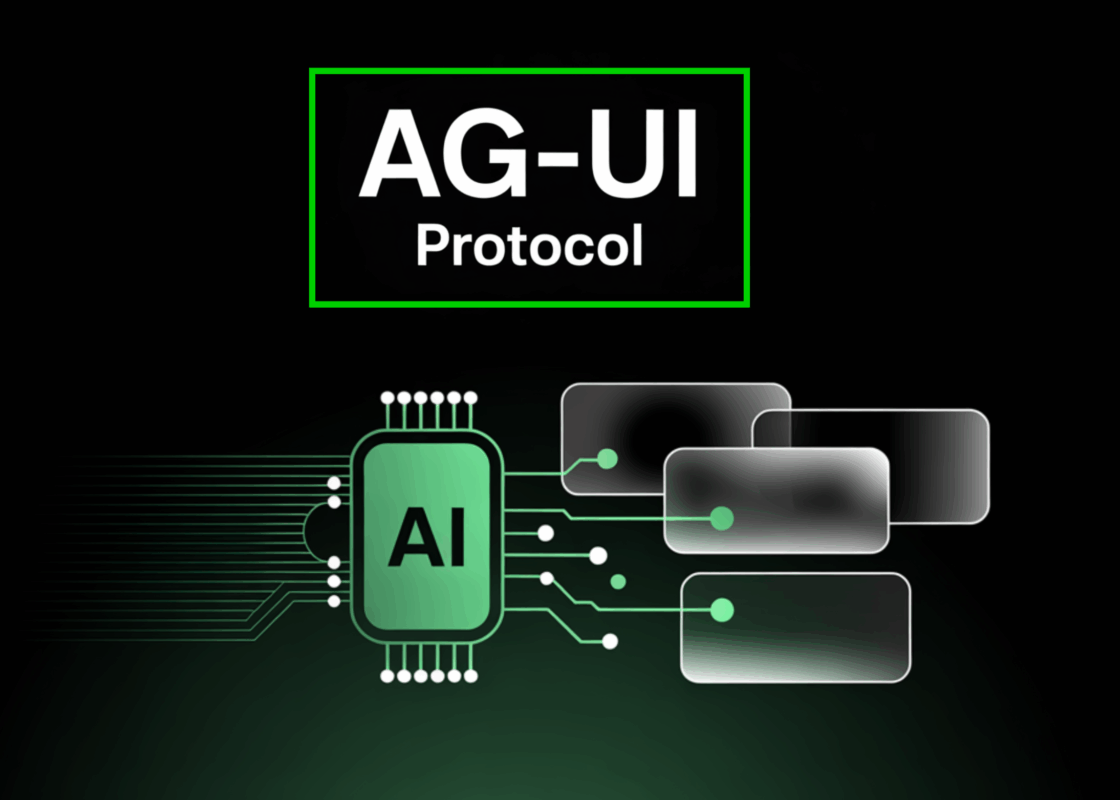Blog
MIT’s LEGO: A Compiler for AI Chips that Auto-Generates Fast, Efficient Spatial Accelerators

Introduction to MIT’s Innovative Compiler for AI Chips
In recent years, artificial intelligence (AI) has become an essential part of numerous technological advancements. As the demand for faster and more efficient processing increases, researchers are continuously striving to enhance AI chip performance. At the forefront of this innovation is MIT’s revolutionary compiler, designed specifically to auto-generate spatial accelerators for AI applications. This cutting-edge tool not only boosts the efficiency of AI chips but also provides a seamless solution for developers looking to optimize their hardware.
Understanding the Need for Efficient AI Chips
AI applications require immense computational power, making it crucial for chips to operate efficiently. Traditional methods of chip design often demand extensive manual intervention and specialized knowledge, which can impede the pace of development. Consequently, researchers are now focusing on automating chip design processes to enable faster, more dynamic responses to the ever-evolving landscape of AI technology.
The Challenges Faced in AI Chip Design
- Complexity of Design: Developing chips tailored for AI applications often involves complex architectures that can be challenging to manage.
- Time Constraints: The rapid progression of AI technologies necessitates quicker development cycles, which traditional design methods struggle to achieve.
- Resource Utilization: Many existing AI chips fail to optimally use available resources, leading to inefficiencies that can hinder performance.
Introducing MIT’s Compiler
MIT’s compiler is a pioneering solution to the challenges faced in AI chip design. This tool automates the process of generating spatial accelerators, maximizing performance while minimizing energy consumption.
Key Features of the MIT Compiler
- Auto-Generation Capabilities: The compiler automatically generates the necessary hardware architecture tailored specifically for the AI algorithms in use.
- Spatial Acceleration: By utilizing spatial computing techniques, the compiler ensures that AI tasks are processed more rapidly and efficiently.
- Resource Optimization: The system intelligently allocates resources, reducing waste and enhancing overall performance.
How the Compiler Works
The underlying mechanism of MIT’s compiler can be understood through a systematic approach:
- Input Stage: Developers input their AI algorithm specifications into the compiler.
- Analysis Phase: The compiler analyzes the algorithm to understand its computational requirements.
- Design Generation: Based on the analysis, the compiler auto-generates the corresponding chip architecture, ensuring that the design caters to the specific needs of the algorithm.
- Implementation: Finally, the generated architecture can be directly implemented or further customized based on requirements.
Benefits of Using the MIT Compiler
- Accelerated Development: Developers can significantly reduce the time taken to design and implement AI chips.
- Enhanced Performance: The spatial accelerators created by the compiler outperform many traditional designs, delivering superior processing speeds.
- User-Friendly Interface: With its intuitive design, the compiler is accessible to a wider range of developers, including those who may not have extensive hardware design experience.
Real-World Applications
The implications of MIT’s compiler extend across various industries. Here are a few examples where its technology can be pivotal:
Healthcare
In the healthcare sector, AI is increasingly used for diagnostics and patient care. Efficient AI chips can process vast amounts of data in real time, enabling faster decision-making and improved patient outcomes.
Autonomous Vehicles
The development of self-driving cars relies heavily on AI for navigation and decision-making. With optimized chips, these vehicles can operate more safely and effectively, thanks to the accelerated data processing capabilities.
Smart Cities
Smart city initiatives often integrate AI systems for better traffic management, energy conservation, and infrastructure monitoring. By employing advanced AI chips, municipalities can enhance the efficiency and reliability of these systems.
The Future of AI Hardware Design
As AI continues to evolve, so will the requirements for hardware that can support these advancements. MIT’s compiler is paving the way for a future where chip design is more accessible and efficient.
Prospective Advancements
- Adaptability: Future updates to the compiler will likely allow for even more rapid adaptation to new AI algorithms as they emerge.
- Collaborative Development: By reducing barriers to entry in chip design, a broader range of developers can contribute to innovations in AI hardware.
- Sustainability: With a focus on energy-efficient designs, the continued development of this compiler aligns with global efforts to reduce carbon footprints associated with technology.
Challenges and Considerations
While MIT’s compiler represents a significant advancement, it is not without challenges. There remain concerns about:
- Integration with Existing Systems: Ensuring that new chip designs can integrate seamlessly with existing infrastructures is vital.
- Continuous Improvement: The tech landscape evolves rapidly, so the compiler must persist in refining its capabilities to stay relevant.
- Resource Allocation: Balancing resource allocation between various applications without sacrificing performance is a complex challenge.
Conclusion
In summary, MIT’s compiler for AI chips signifies a transformative step in hardware design, addressing both the intricacies of chip architecture and the pressing demands of AI applications. By automating the design process and enhancing both performance and efficiency, this innovative tool is set to change how developers approach AI hardware. As we move forward, the implications of this technology will resonate across multiple industries, driving advancements that will shape the future of AI and its applications. Embracing such innovations could very well lead us into an era where highly efficient AI solutions become the norm, fostering growth and enhancing capabilities across the board.
Elementor Pro
In stock
PixelYourSite Pro
In stock
Rank Math Pro
In stock
Related posts
Building a WordPress Plugin | Jon learns to code with AI
How to add custom Javascript code to WordPress website
6 Best FREE WordPress Contact Form Plugins In 2025!
Solve Puzzles to Silence Alarms and Boost Alertness
Conheça AI do WordPress para construção de sites
WordPress vs Shopify: The Ultimate Comparison for Online Store Owners | Shopify Tutorial
Apple Ends iCloud Support for iOS 10, macOS Sierra on Sept 15, 2025
How to Speed up WordPress Website using AI 🔥(RapidLoad AI Plugin Review)
Bringing AI Agents Into Any UI: The AG-UI Protocol for Real-Time, Structured Agent–Frontend Streams
Web Hosting vs WordPress Web Hosting | The Difference May Break Your Site
Google Lays Off 200+ AI Contractors Amid Unionization Disputes
MIT’s LEGO: A Compiler for AI Chips that Auto-Generates Fast, Efficient Spatial Accelerators
Products
-
 Rayzi : Live streaming, PK Battel, Multi Live, Voice Chat Room, Beauty Filter with Admin Panel
Rayzi : Live streaming, PK Battel, Multi Live, Voice Chat Room, Beauty Filter with Admin Panel
$98.40Original price was: $98.40.$34.44Current price is: $34.44.In stock
-
 Team Showcase – WordPress Plugin
Team Showcase – WordPress Plugin
$53.71Original price was: $53.71.$4.02Current price is: $4.02.In stock
-
 ChatBot for WooCommerce – Retargeting, Exit Intent, Abandoned Cart, Facebook Live Chat – WoowBot
ChatBot for WooCommerce – Retargeting, Exit Intent, Abandoned Cart, Facebook Live Chat – WoowBot
$53.71Original price was: $53.71.$4.02Current price is: $4.02.In stock
-
 FOX – Currency Switcher Professional for WooCommerce
FOX – Currency Switcher Professional for WooCommerce
$41.00Original price was: $41.00.$4.02Current price is: $4.02.In stock
-
 WooCommerce Attach Me!
WooCommerce Attach Me!
$41.00Original price was: $41.00.$4.02Current price is: $4.02.In stock
-
 Magic Post Thumbnail Pro
Magic Post Thumbnail Pro
$53.71Original price was: $53.71.$3.69Current price is: $3.69.In stock
-
 Bus Ticket Booking with Seat Reservation PRO
Bus Ticket Booking with Seat Reservation PRO
$53.71Original price was: $53.71.$4.02Current price is: $4.02.In stock
-
 GiveWP + Addons
GiveWP + Addons
$53.71Original price was: $53.71.$3.85Current price is: $3.85.In stock
-
 JetBlog – Blogging Package for Elementor Page Builder
JetBlog – Blogging Package for Elementor Page Builder
$53.71Original price was: $53.71.$4.02Current price is: $4.02.In stock
-
 ACF Views Pro
ACF Views Pro
$62.73Original price was: $62.73.$3.94Current price is: $3.94.In stock
-
 Kadence Theme Pro
Kadence Theme Pro
$53.71Original price was: $53.71.$3.69Current price is: $3.69.In stock
-
 LoginPress Pro
LoginPress Pro
$53.71Original price was: $53.71.$4.02Current price is: $4.02.In stock
-
 ElementsKit – Addons for Elementor
ElementsKit – Addons for Elementor
$53.71Original price was: $53.71.$4.02Current price is: $4.02.In stock
-
 CartBounty Pro – Save and recover abandoned carts for WooCommerce
CartBounty Pro – Save and recover abandoned carts for WooCommerce
$53.71Original price was: $53.71.$3.94Current price is: $3.94.In stock
-
 Checkout Field Editor and Manager for WooCommerce Pro
Checkout Field Editor and Manager for WooCommerce Pro
$53.71Original price was: $53.71.$3.94Current price is: $3.94.In stock
-
 Social Auto Poster
Social Auto Poster
$53.71Original price was: $53.71.$3.94Current price is: $3.94.In stock
-
 Vitepos Pro
Vitepos Pro
$53.71Original price was: $53.71.$12.30Current price is: $12.30.In stock
-
 Digits : WordPress Mobile Number Signup and Login
Digits : WordPress Mobile Number Signup and Login
$53.71Original price was: $53.71.$3.94Current price is: $3.94.In stock
-
 JetEngine For Elementor
JetEngine For Elementor
$53.71Original price was: $53.71.$3.94Current price is: $3.94.In stock
-
 BookingPress Pro – Appointment Booking plugin
BookingPress Pro – Appointment Booking plugin
$53.71Original price was: $53.71.$3.94Current price is: $3.94.In stock
-
 Polylang Pro
Polylang Pro
$53.71Original price was: $53.71.$3.94Current price is: $3.94.In stock
-
 All-in-One WP Migration Unlimited Extension
All-in-One WP Migration Unlimited Extension
$53.71Original price was: $53.71.$3.94Current price is: $3.94.In stock
-
 Slider Revolution Responsive WordPress Plugin
Slider Revolution Responsive WordPress Plugin
$53.71Original price was: $53.71.$4.51Current price is: $4.51.In stock
-
 Advanced Custom Fields (ACF) Pro
Advanced Custom Fields (ACF) Pro
$53.71Original price was: $53.71.$3.94Current price is: $3.94.In stock
-
 Gillion | Multi-Concept Blog/Magazine & Shop WordPress AMP Theme
Rated 4.60 out of 5
Gillion | Multi-Concept Blog/Magazine & Shop WordPress AMP Theme
Rated 4.60 out of 5$53.71Original price was: $53.71.$5.00Current price is: $5.00.In stock
-
 Eidmart | Digital Marketplace WordPress Theme
Rated 4.70 out of 5
Eidmart | Digital Marketplace WordPress Theme
Rated 4.70 out of 5$53.71Original price was: $53.71.$5.00Current price is: $5.00.In stock
-
 Phox - Hosting WordPress & WHMCS Theme
Rated 4.89 out of 5
Phox - Hosting WordPress & WHMCS Theme
Rated 4.89 out of 5$53.71Original price was: $53.71.$5.17Current price is: $5.17.In stock
-
 Cuinare - Multivendor Restaurant WordPress Theme
Rated 4.14 out of 5
Cuinare - Multivendor Restaurant WordPress Theme
Rated 4.14 out of 5$53.71Original price was: $53.71.$5.17Current price is: $5.17.In stock
-
 Eikra - Education WordPress Theme
Rated 4.60 out of 5
Eikra - Education WordPress Theme
Rated 4.60 out of 5$62.73Original price was: $62.73.$5.08Current price is: $5.08.In stock
-
 Tripgo - Tour Booking WordPress Theme
Rated 5.00 out of 5
Tripgo - Tour Booking WordPress Theme
Rated 5.00 out of 5$53.71Original price was: $53.71.$4.76Current price is: $4.76.In stock

















